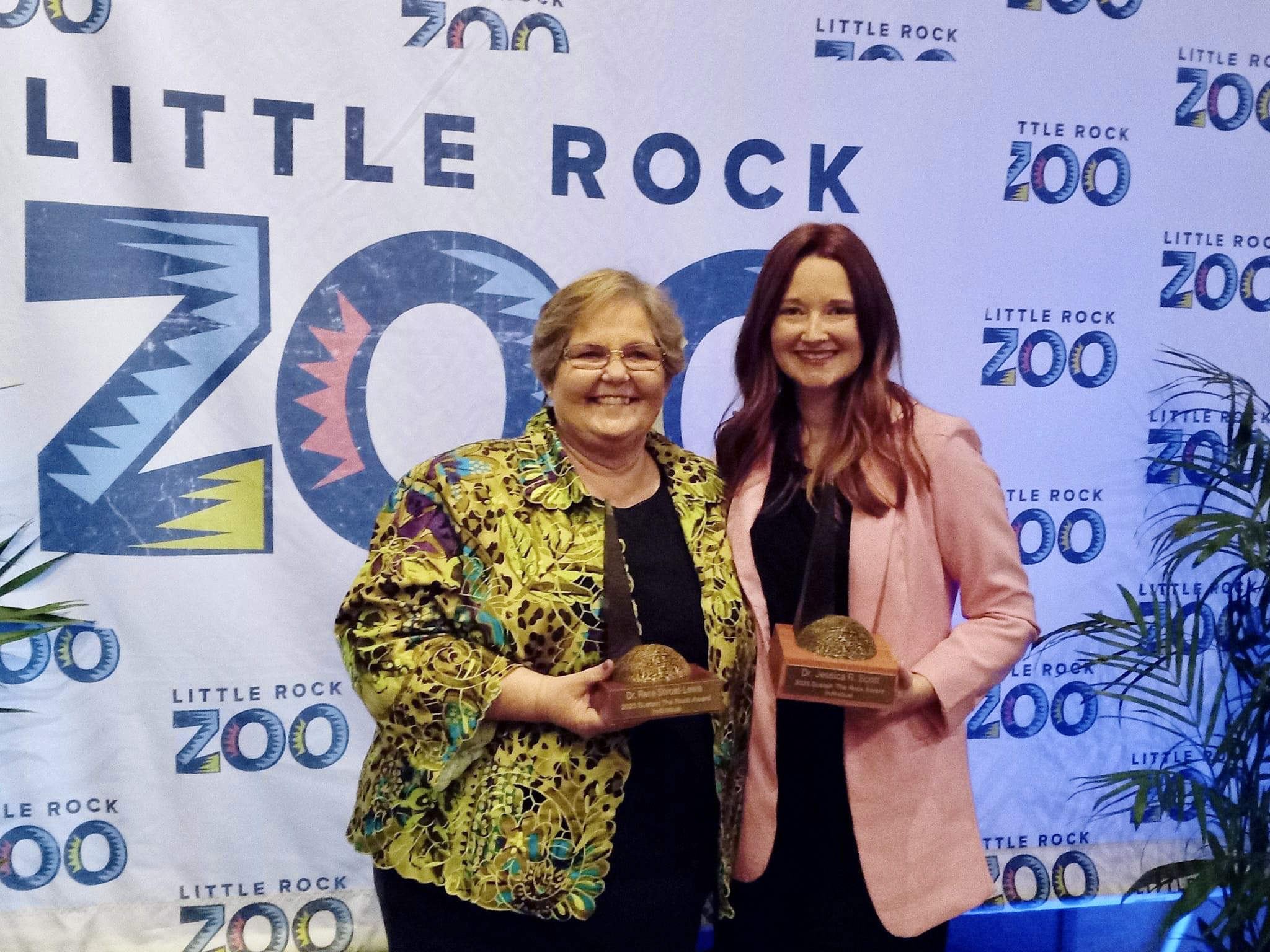UA Little Rock Professors Honored for Commitment to Sustainability

The City of Little Rock has honored two University of Arkansas at Little Rock professors for their years of service and dedication to sustainability efforts to protect the environment.
Dr. Jessica Scott, associate director of the Donaghey Scholars Honors Program, and Dr. René Shroat-Lewis, associate professor of geology, both received a Sustain the Rock Award from the Little Rock Sustainability Commission on April 19.
“I am thrilled and very excited,” Lewis said. “Not only does this award make us feel proud, but it also brings to light a lot of the efforts going on at UA Little Rock as an urban campus.”
The Sustain the Rock Award recognizes businesses, non-profits, individuals, and departments or employees of the City of Little Rock who have made significant contributions to a more sustainable Little Rock.
Scott and Lewis were honored for a two-semester class they teach to students in the Donaghey Scholars Honors Program. Science and Society I and II are a part of the Donaghey Scholars’ core curriculum and are focused on sustainability, climate change, and reduction of individual and collective carbon footprints.
“Science does not exist in a vacuum,” Scott said. “Science can only take us so far, the people must implement solutions. You can’t really address a scientific issue without also considering societal impact. In the spring, we are looking at many of the issues related to climate change – energy, sustainable cities, public policy related to climate and sustainability, and economic impact. We are really focused on the environment.”
The course is designed to engage students with broader issues related to sustainability, like social equity, environmental justice, and making green initiatives economically viable for the City of Little Rock.
As one of the class projects, students work in teams to craft grant proposals for the campus Sustainability Committee. To date, five student projects have been funded, including the installation of a pollinator garden and bee houses in the Campus Garden, a trash boom to collect floating debris in Coleman Creek, the planting of native grasses throughout campus, and the creation of a butterfly garden.
The professors were so impressed with one student’s proposal that they funded it themselves. In 2019, the class collected clothing and appliances when students moved off campus at the end of the school year. They donated these items to Our House, a local nonprofit that provides services for the homeless and near-homeless individuals and families.
“As a result of this course, several students have gone on to be leaders in the sustainability community,” Lewis and Scott said. “One now serves as the communications coordinator for the Citizens Climate Lobby. Others have attended the City of Little Rock Sustainability Summit and have become climate reality leaders with former Vice President Al Gore. Others have gone on to work for local companies with strong organizational identities around sustainability, including L’Oréal, the Little Rock Zoo, and Entegrity.”
Scott has been teaching the course for a decade, while Lewis joined her in 2015. So far, more than 275 students have taken the course at UA Little Rock. While the innovative nature of the class is a win with students, both professors feel their ability to teach well together also resonates with students.
“Jessica and I work well together,” Lewis said. “There is a great rapport between the two of us. I think the students can tell that we are not just co-instructors but friends as well. In many ways, this award belongs to our scholars, who we learn from every semester. We see learning as a shared experience.”
